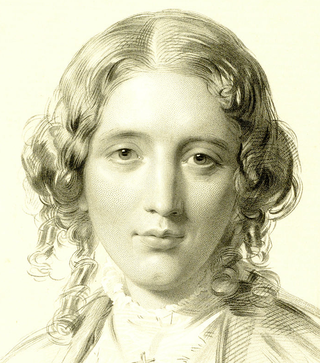Ethics and Morality
The Little Woman Who Took on America's Greatest Evil
The most powerful weapon against racism and slavery was words.
Posted August 5, 2020 Reviewed by Gary Drevitch

She came from a family of 13 that included two of the most famous men in America. The mother of seven children herself, she also managed to write 30 books. One became the best-selling American novel of the 19th century and did more than any other to open the eyes of Americans to the blight of slavery’s dehumanization. President Lincoln is said to have greeted her by saying, “So you are the little women who wrote the book that started this great war.” Her name, of course, is Harriet Beecher Stowe, and her book is Uncle Tom’s Cabin.
More young people today need to know Stowe and her book. At a time when options for public service for women were highly limited, she rose to become one of the most influential voices in American history. She did it not through wealth, fame, or political office, but simply through the power of words. And she told that story not for her own benefit but in service to oppressed peoples and an entire nation sickened by a corrupt and corrupting institution. Her story offers inspiration to young people who seek to help heal our society.
Stowe was born in Connecticut in 1811, the sixth of her parents’ 11 children. Her father was the great preacher Lyman Beecher, who served as president of Lane Seminary in Cincinnati. Her brothers included Henry Ward Beecher, at one point perhaps the most famous person in the United States, whose services in rousing support for the Union causes in the Civil War Lincoln regarded as essential. Several other siblings also rose to prominence, including her sister Catherine, who ran a female seminary that Harriet attended.
At 21, she moved to Cincinnati to join her father. Her 18 years there profoundly shaped her life. She met her husband, seminary professor Calvin Stowe, and they were married in 1836. Just across the river from slaveholding Kentucky, Cincinnati was a boom town teeming with escaped slaves and bounty hunters. Her father’s seminary hosted debates on slavery, which prompted such ferocious attacks by those fighting the abolition of slavery that he prohibited further discussion of the topic, sparking an exodus of students to the newly founded Oberlin College.
Calvin and Harriet Stowe were staunch opponents of slavery and even hosted multiple escaped slaves in their home, as part of the Underground Railroad. In 1850 they moved to Maine, where Calvin had accepted a faculty position at Bowdoin College, and during that same year Congress passed the 1850 Fugitive Slave Act. The law required that even slaves in free states be returned to their owners and made the federal government responsible for doing so. In effect, the law seemed to abolitionists to transform the United States – north as well as south – into a slave nation, and the Stowes were horrified.
While the Fugitive Slave Act was an important factor in Stowe’s decision to write her most famous book, another was the death of her son, Samuel Charles Stowe, the year before. Known to the family as “Little Charley,” the boy died during a cholera epidemic. Writing to her husband just two days the event, Stowe described the scene of the boy’s death:
"My Charley, my beautiful, loving, gladsome baby, so loving, so sweet, so full of life and hope and strength, now lies shrouded, pale and cold, in the room below. Never was he anything to me but a comfort. He has been my pride and joy. Many a heartache has he cured for me. Many an anxious night have I held him to my bosom and felt the sorrow and loneliness pass out of me with the touch of his little warm hands. Yet I have just seen him in his death agony, looked on his imploring face when I could not help nor soothe nor do one thing, not one, to mitigate his cruel suffering, do nothing but pray in my anguish that he might die soon."
Uncle Tom’s Cabin
Instead of giving in to despair, Stowe vowed to draw on her suffering for the benefit of her country. She wrote, “Having experienced losing someone so close to me, I can sympathize with all the poor, powerless slaves at the unjust auctions.” She wrote to the editor of an anti-slavery journal, indicating that she planned to compose a story that would evoke the sympathies of readers for the plight of the enslaved: “I feel now that the time is come when even a woman or a child who can speak a word for freedom and humanity is bound to speak.”
Stowe published the first installment of what later became Uncle Tom’s Cabin in 1851, and further installments appeared on a weekly basis for nearly a year. When published as a book, it immediately established itself as a runaway bestseller, with purchasers snapping up tens of thousands of copies per week. The book sold even more briskly abroad, where in Britain alone more than a million copies were purchased. Translated into many languages, Uncle Tom’s Cabin is often said to be the second-bestselling book of the 19th century, after the Bible.
Subtitled “Life among the Lowly,” the book profoundly shaped attitudes toward slavery and, as Lincoln’s remark suggests, set the stage for the Civil War that would end it permanently. In it, a Kentucky farmer facing mounting debt feels compelled to sell two of his slaves, one of whom is the married father Uncle Tom. While onboard a riverboat to the slave market, Tom befriends a little girl, Eva. When she falls into the river, Tom saves her, and he is purchased by her grateful father. After two years with the family, Eva dies, but not before she shares a vision of heaven and universal brotherhood.
Before Eva’s father can free Tom, he is killed, and his wife sells Tom at auction to a cruel plantation owner named Simon Legree. When Tom refuses to whip another slave, Legree tries to break his deep religious faith, almost succeeding. But Tom has two visions that renew his belief. Ordered to disclose the whereabouts of two escaped slaves, Tom refuses, and Legree orders his death. As Tom is dying, he forgives the two men who have killed him. Awed by what they have experienced, the men convert to Tom’s faith. Just then, the Kentucky farmer’s son arrives to buy Tom’s freedom, but he is too late.
Although there is nothing Tom’s former owner’s son can do for him, he resolves to have no further truck with slavery. As he sets his slaves free, he vows:
"It was on his grave, my friends, that I resolved, before God, that I would never own another slave, while it is possible to free him; that nobody, through me, should ever run the risk of being parted from home and friends, and dying on a lonely plantation, as he died. So, when you rejoice in your freedom, think that you owe it to that good old soul, and pay it back in kindness to his wife and children. Think of your freedom, every time you see Uncle Tom’s cabin; and let it be a memorial to put you all in mind to follow in his steps, and be as honest and faithful and Christian as he was."
Stowe’s Lessons
Stowe managed to exert more influence over American public opinion than any previous woman. And she did it with words – words shaped and energized by her own experience. She drew on her sense of moral outrage over the treatment of slaves she had witnessed, as well as her heartbreak over the loss of her beloved Charley, resolving that he should not die in vain and that some good should come of her grief. Young people, too, need to look deep within themselves and their life experiences for wellsprings of inspiration and sustenance.
Stowe, deeply moved by Charley’s death and horrified by the Fugitive Slave Act, decried the evils of slavery by cultivating her readers’ sympathies for the plight of the enslaved. Regardless of the color of his skin, Uncle Tom is a transparently noble human being, a person of deep faith and principle who is prepared to sacrifice himself for the sake of others. Stowe invites readers to see themselves in the stories of separated families, to imagine how they would feel in such circumstances. In seeking to build better communities, young people too need to draw on wellsprings of indignation and sympathy.
While the rights of women in Stowe’s day were highly constrained, she believed that if slavery were to be banished from the land, it would require their concerted efforts. Men owned the property, held public office, and fought the battles, but the most important victory to be won was in the hearts of wives and mothers everywhere. Once they felt for themselves what it meant for a family to be torn apart, no woman could fail to recognize the evil of slavery. Likewise, for advocacy to thrive, young people today need to see beyond formal power to the real source of moral authority: the human heart.




